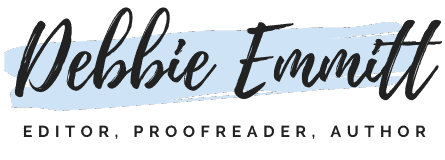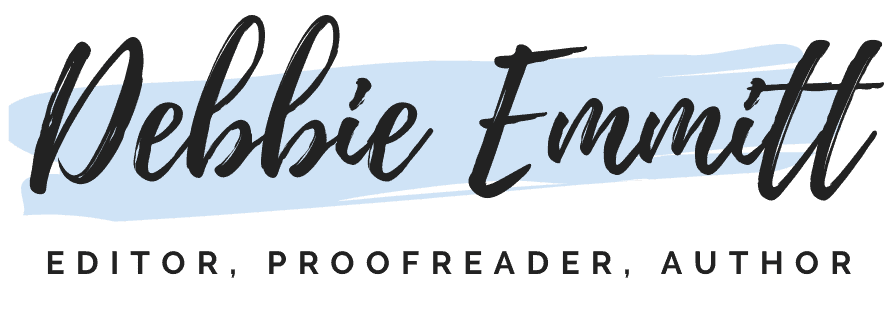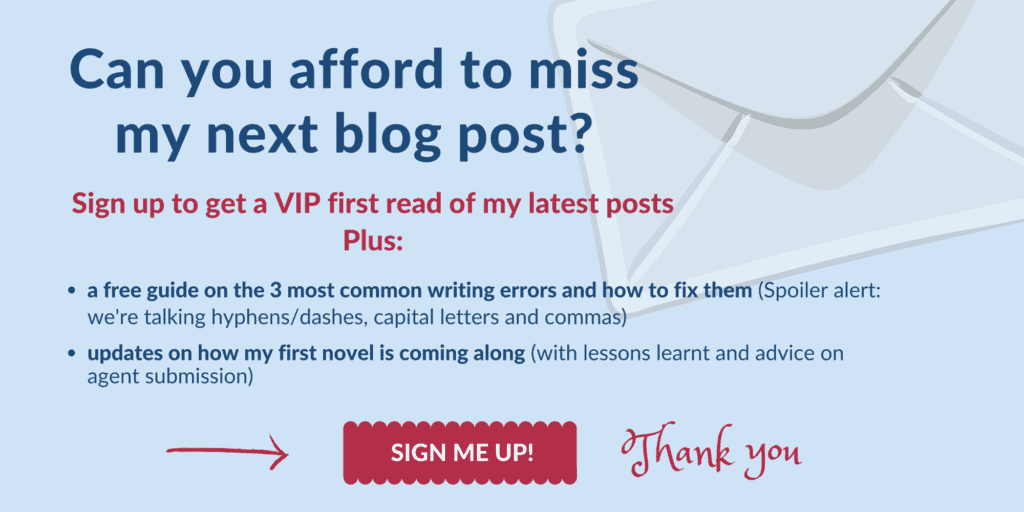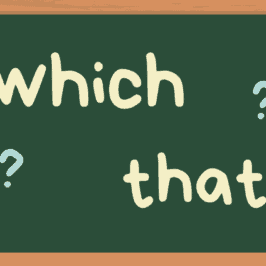
Don’t feel overwhelmed by your Facebook author page. Read my tips on how often to post, when to post and inspiration on what to post, and you’ll soon be a Facebook ninja!
Before we get into the nitty-gritty, a word of warning. Facebook, and any other third-party platform, does not replace the need for an author website. Your website is the platform that you have the most control over, so spend time getting that fine-tuned before you go down the route of Facebook, Twitter and others. That way, if Facebook disappeared tomorrow, you’ll still have some online real estate to market. Right, lecture over, let’s dive in!
Setting up your Facebook author page
The first thing to think about is whether you want to set up an author page or use your personal profile. I strongly advise you to set up a separate page for your author presence for reasons of privacy, organisation and general best practice. Read my step-by-step guide on creating your Facebook author page, with pics!
Please note that this post doesn’t cover Facebook ads. I’m purely talking about content for your author page.
How often to post and when?
So you’ve got your author page set up, and have a few people interested in what you have to say. What the heck are you going to say to them, and how often are you going to say it?
The general consensus is to post on Facebook at least once a week, ideally three times a week, but no more than once a day.
I tend to post to my Facebook author page around once a week and have it as a standing item on my weekly to-do list, so the weeks don’t tick by without me realising. I’d like to post more often, and am in the process of setting up a social media calendar for both my author and editor/proofreader presence, which will help with the frequency of my posts.
For the best time to post, be guided by when your followers are online. This information is in your Insights tab (link in the menu down the left of your page). Scroll down to the section ‘Your Five Most Recent Posts’ and click on that heading. Yes, it’s a link, even though it doesn’t look like one. You’ll then see a graph showing when your fans are online. Take note of the timezone, and ‘translate’ to your local one if need be.
For the best time to post on your Facebook page, be guided by when your followers are online. It's easy to find this out! Share on XIf you want to delve further into the analytics, Benjamin Chacon has written a useful article on when to post on your Facebook page.
Engaging content
Facebook algorithms are complex and forever changing. The basics are that the more recent and engaging your posts (number of comments, Likes, shares, plus use of videos and images), the more they will bubble to the top of your followers’ news feeds.
The Facebook algorithm is constantly changing, and each change tends to move more in favour of posts from friends and family, and less in favour of those from businesses and pages. This pushes owners of pages more in the direction of paying for Google Ads, or paying to boost posts, in order to be seen. However, there are still things you can do to increase your exposure free of charge. Chad Rubin has lots of great ideas on how to beat the Facebook algorithm in 2021.
The bottom line is: keep giving people interesting content (try to include video – especially live video – and images whenever possible) on your Facebook author page. They will be moved to share or comment on your posts, and the algorithm will bump you up people’s feeds.
Content inspiration for your Facebook author page
There are no rules on what to post. Of course, there are the obvious things like updating your followers on your current work in progress, book promotions and quotes from your book (and there is absolutely nothing wrong with these, in fact, they are essential for an author page), but how about trying out some of the following, less obvious ideas:
- “Ask me anything” – open yourself up to your audience (remember not to share anything you wouldn’t tell the town gossip). You could even do this as a live video, something that the Facebook algorithm likes.
- Photos and videos from book research trips.
- Post selfies. Your audience will love to see sneaky peeks of you and your life. Again, remember that your Facebook page is a public space so be comfortable with what you are sharing, and be aware of the privacy of other people.
- Read an extract from your book. This could be pre-recorded, or for extra Facebook algorithm points, make it live. Keep it short, people will be more likely to click next time you do the same.
- Tell people what you are reading (only if you have something good to say; don’t be mean about other authors’ works). Ask people what they are reading.
While it’s fine (and necessary) to post promotional stuff, be very careful that isn’t all you post.
You’ll find more interesting ideas in Leila Hirschfield’s post, How Successful Authors Use Social Media. There are plenty more (50, in fact) in Penny Sansevieri’s article, 50 Ways Indie Authors Can Boost Their Facebook Engagement Now (from 2018 but still relevant).
While it's fine (and necessary) to post promotional stuff on your Facebook page, be very careful that isn't all you post. There's lots more you can tell the world! Share on XTalk to me
- Tell me what you do to engage your audience on Facebook.
- Leave a link to your Facebook page. Here’s mine: www.facebook.com/debbieemmitt









B.D. Lawrence
I have my website linked to my author page. When I post reviews, blogs and other things on my site it posts to my page. Thoughts on that technique?
My page is http://www.Facebook.com/bdlawrencewriter
Debbie Emmitt
Hi, that is a good technique to ensure that your Facebook page is updated regularly, and to push traffic to your site. However, it’s also worthwhile posting material that is directly for your Facebook audience, as those kinds of posts are often more engaging. In short, the more relevant, interesting and engaging your FB posts are, the better!